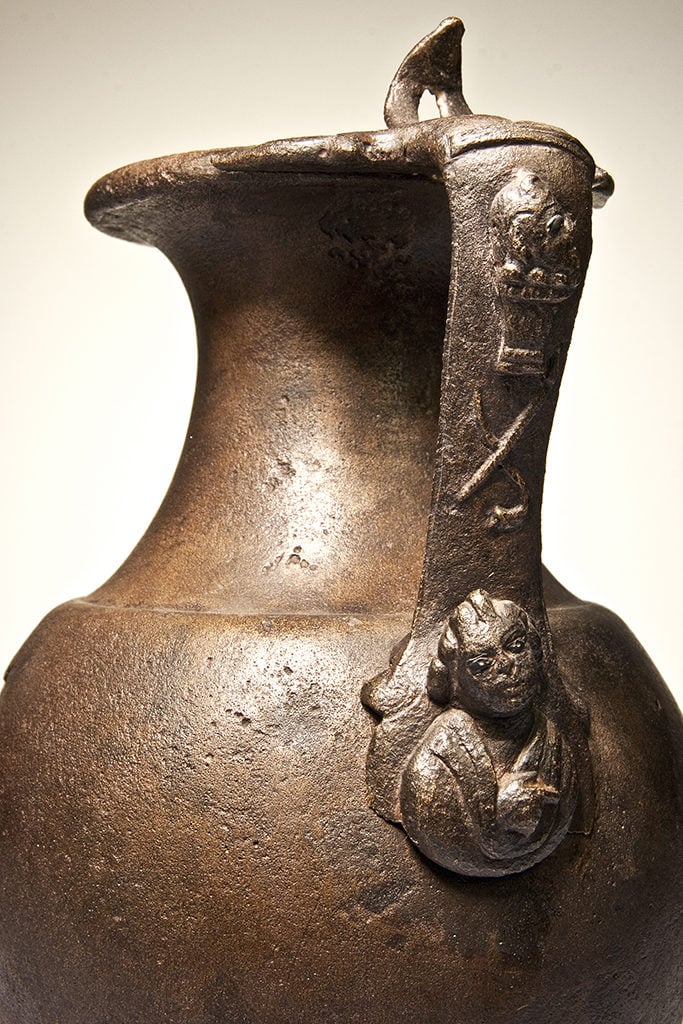Art World
Treasure Hunter Unearths 1800-Year-Old Roman Artifacts in UK Field


Sarah Cascone

A cache of Roman treasures, some of which date back to 174 AD, have been discovered by a treasure hunter in the UK’s Hertfordshire county, reports the BBC.
The Roman artifacts were discovered late last year thanks to a metal detector, which picked up on three jugs and a bronze dish in the village of Kelshall, according to North Hertfordshire District Council. They claim that archaeologists and other experts are now “clamoring” to gain access to the “unique find.”
Further excavations, arranged by council archaeology officer Keith Fitzpatrick-Matthews, have turned up additional finds that suggest what the council describes as a “cosmopolitan” burial, with mosaic glass dishes and cremated bone.
The dishes were found shattered but complete, and are thought to have been made in Alexandria, Egypt, circa 200 AD. “After 1800 years, finds like these still impress us with their workmanship,” said Fitzpatrick-Matthews, as quoted by the BBC.
Other uncovered artifacts include glass bottles and cups, an iron lamp, a box with bronze detailing, and a bronze coin from 174 to 175 AD.
According to the BBC, the find does not fall under the UK’s Treasure Act (unlike the 5,200 Anglo-Saxon counts recently discovered in the English village of Lenborough, Buckinghamshire—see $2 Million Anglo-Saxon Coin Hoard Discovered in Lenborough, Buckinghamshire), so the artifacts belong to the farmer and the man who discovered them. The North Hertfordshire Museum Service is allegedly looking into purchasing the cache, which is estimated by the council to be worth “more than £20,000.”
The find follows other unexpected archaeological discoveries including an ancient Phoenician shipwreck off the coast of Malta (see 2,700-Year-Old Shipwreck Discovered) and a cache of artifacts related to the Jewish exodus from Egypt (see Egyptian Artifacts Discovered in Israel Change Everything We Know About Passover).